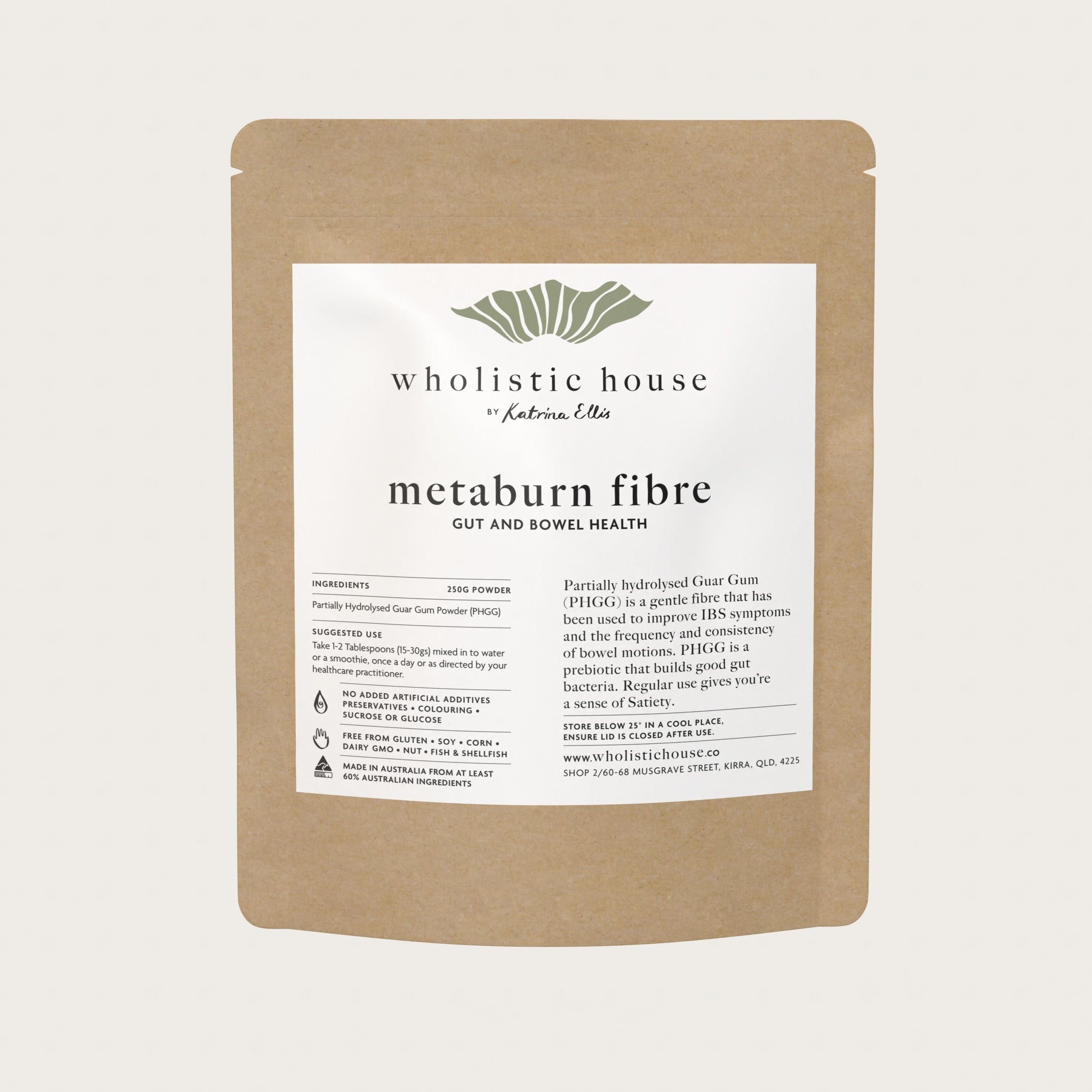
Constipation: Causes and Natural Solutions
Constipation occurs when waste moves too slowly through the large bowel. While occasional constipation isn't unusual, when it becomes a regular issue, it can have serious health consequences. Ideally, bowel movements should occur every 12 to 14 hours, not just a few times a week. Chronic constipation can contribute to various health conditions including food intolerances, appendicitis, bad breath, body odour, cellulite, coated tongue, depression, diverticulitis, low energy, bloating, gas, headaches, haemorrhoids, estrogen dominance, hernias, indigestion, leaky gut, poor nutrient absorption, obesity, small intestinal bacterial overgrowth (SIBO), varicose veins and even bowel cancer.
The large bowel or colon plays a crucial role in eliminating waste from the body. When undigested foods sits for too long in the bowel without moving it can become a breeding ground for harmful toxins, parasites and bacteria. To prevent this and to ensure healthy bowel motions, it is important to find the root cause of your constipation and address with natural solutions rather than relying on temporary and quick fixes like laxatives.
What Causes Constipation
If you're struggling with constipation, one of the first things to look at is your diet. A diet lacking in fibre and rich in processed foods, sugar, excess red meats, tea and caffeine can drive constipation. A lack of pure water intake can also be at the heart of constipation as the bowel needs water to lubricate stools and to stimulate peristalsis.
If these simple changes make no improvements, the cause of your constipation may be a little deeper. For instance, dry, hard stools that are difficult to pass could indicate dehydration from poor mineral absorption, a sluggish gallbladder or poor bile secretion. Another possibility is overeating. If you’re consuming food constantly throughout the day, your digestive system can struggle to keep up with breaking foods down resulting in a compacted bowel. Try to incorporate periods of intermittent fasting to give your digestive system a rest.
Other contributing factors include poor muscle which can slow down peristalsis (the natural movement of the intestines). It is therefore important to incorporate regular exercise to improve muscle tone in the bowels. Health conditions like diabetes, kidney disease, and hormonal imbalances including an underactive thyroid could also be the culprit.

Certain medications are notorious for causing constipation, including antacids, antihistamines, antipsychotics, diuretics, iron supplements, pain medications including opoids, antidepressants, weight loss injections and antihypertensives. Additionally, long-term use of laxatives can worsen the problem by making the body dependent on them for bowel regularity. Stress is another driving factor towards constipation as it can impair the gut-brain axis and slow down blood circulation to the bowel. Serotonin helps control the movement of the muscles in the digestive tract, which is essential for moving food and waste through the intestines. It acts on serotonin receptors located in the smooth muscle of the gut. When serotonin levels are properly balanced, it supports peristalsis.
Ultimately, constipation can be caused by a variety of factors, and finding out the root causes and treating these with natural solutions is the key to correcting this. If lifestyle and diet changes does not resolve the issue, it may be time to consult with a naturopath to explore other driving factors. Below are some of the most effective dietary changes, lifestyle tips, and natural remedies:
Dietary Advice for Constipation Relief
Increase Natural Fiber Intake - Fiber adds bulk to stools allowing for better bowel movements. Soluble fibre helps to absorb water and forms gel like substances in the stool and these are found in beans, lentils, citrus, carrots, psyllium, lentils and psyllium. Insoluble fibre adds bulk & helps stools to move through and this includes brown rice, nuts, seeds, broccoli, spinach, chia seeds, and flaxseeds.
6 to 8 glasses of Alkaline, Hydrogen Water – Adequate hydration is crucial for softening stools. Aim for 6 to 8 glasses of water daily.
Healthy Fats - helps to lubricate the digestive tract making it easier for stools to pass. Healthy fats include olives, olive oil, avocado, nuts, seeds and fatty fish.
Prebiotic rich foods - help to balance gut bacteria supporting regular bowel movements. These include fermented foods like kefir, sauerkraut, kimchee and yoghurt.
|
Nature’s Best Poopy Movers
Alfalfa sprouts, Apples, Asparagus, Avocado, Banana, Barley, Bran, Beetroot, Blackberries (good for diarrhea too), Broccoli, Brown Rice, Brussel Sprouts, Cabbage, Carrots, Cauliflower, Chickpeas, Coconut, Dandelion Greens, Dates, Eggplant, Endive, Flaxseeds, Flaxseed Oil, Garlic, Grapes, Green Beans, Honey, Kale, Kidney Beans, Lemon, Lentils, Lima Beans, Mango, Oat Bran, Olive Oil, Onions, Papaya, Parsley, Peas, Pear, Pineapple, Pine Nuts, Prunes, Psyllium, Raspberries, Rice Bran, Seaweeds, Sunflower Seeds, Sweet Potato, Walnut, Watercress.
|
Exercise and Lifestyle Tips
Exercise Regularly - Physical activity stimulates natural peristalsis via muscle movement. It also helps to boost serotonin production improving gastric motility.
Establish a Routine - Try to use the bathroom at the same time every day, especially after meals. The natural “gastrocolic reflex” is stronger after eating, which can stimulate the urge to go. Put your feet on a stool to help correct posture for better bowel motions.
Avoid Holding On - If you feel the urge to go, don't ignore it. Repressing bowel movements can cause stool to become harder and more difficult to pass.
Yoga and Relaxation - Yoga poses such as the Cobra pose, Cat pose, and Knee-to-Chest pose help stimulate digestion and relieve constipation. Deep breathing and relaxation techniques can also help reduce stress and improve bowel function.
Natural Remedies to Relieve Constipation
Many herbs and nutrients help in several ways by stimulating natural peristalsis, softening stools, restoring the gut microbiome and repairing intestinal permeability. The best of these include:
Fibre can help to soften stools and improve gut motility in some people. Some of the best natural fibre supplements include inulin (a prebiotic fibre), partially hydrolyzed guar gum (PHGG), Acacia Fibre and more. It is important to drink lots of water if using a fibre supplement
Aloe Vera contains natural anthraquinones to help soften stools while giving anti-inflammatory and soothing qualities. Always choose 100% leaf remedies.
Flaxseeds contain healthy fats, fibre and a natural mucilage which forms a gel like substance to soften stools and improve bowel movements.
Senna and Cascara Sagrada are effective short-term herbs that act as natural laxatives. These herbs are best used short-term.
Dandelion Root, Globe Artichoke & Bupleurum all support liver and gallbladder function and bile secretion softening bowel motions ensuring regularity.
Fennel Seeds help relieve gas and bloating and can promote smoother bowel motions, making them useful for easing constipation-related discomfort.
Magnesium is an electrolyte and bowel relaxant that can soften stools and stimulate peristalsis. Magnesium glycinate is a gentle form and magnesium oxide is perfect for drawing water into the bowels to give it a good flush.
Vitamin C is not only great for detoxification, but it has a natural laxative effect if used in higher doses.
Reishi, Shitake, Chaga, Lion’s Mane, Turkey Tail and Cordyceps are rich sources of prebiotics that nourish and fortify the body’s gut microbiome for effective bowel movements and regularity.
Probiotics help to build natural bacteria in the gut restoring balance and regularity. If you suffer from constipation consider adding a strong probiotic rich in lactobacillus acidophillus, lactobacillus plantarium, bifidus and sacromyces bouulardi
Final Thoughts on Constipation
Constipation is a condition that affects many people but can often be treated naturally by addressing the root causes. By adjusting your diet, increasing hydration and exercise, and using herbal and nutritional remedies, you can alleviate constipation without relying on harsh, dependency-forming laxatives. Always consult with a healthcare provider if your constipation is chronic or linked to other medical conditions. Empower yourself with natural remedies and adopt a proactive approach to maintain a healthy digestive system.
|
My Fav Wholistic House Picks Lipo Super C
|
In love, health and squeaky-clean bowels,

Referenced products





Leave a comment
This site is protected by hCaptcha and the hCaptcha Privacy Policy and Terms of Service apply.
All comments are moderated before being published.